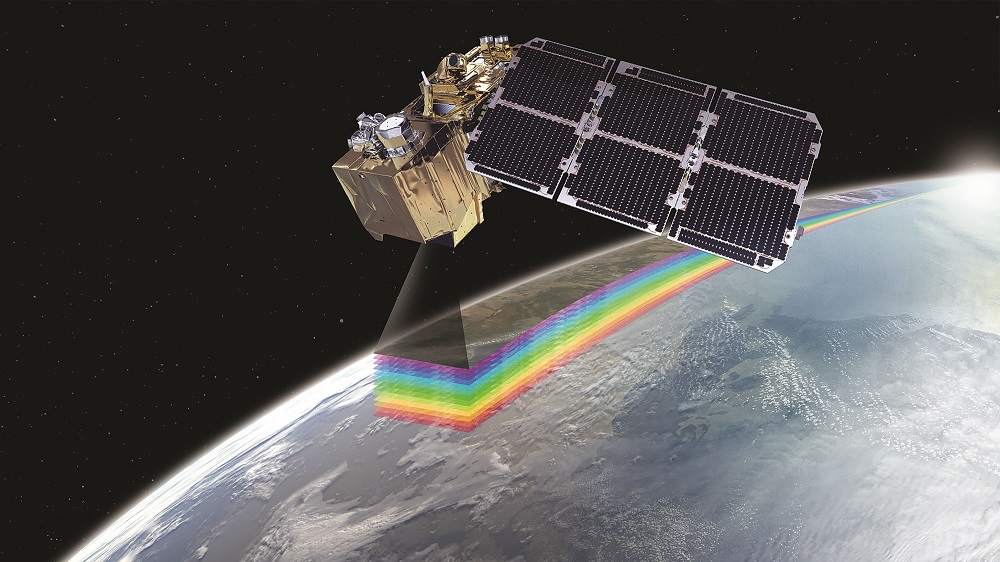Products You May Like
WASHINGTON — An agreement between the United Kingdom and the European Union will allow the UK to remain in the Copernicus Earth observation program after it formally exits the EU.
The UK and EU announced a broad agreement Dec. 24 governing the UK’s relationship with the EU once the country formally withdraws from the European Union, a process known as Brexit. The UK was facing a Jan. 1 deadline to complete a deal governing its relationship with the EU on issues such as trade, law enforcement and participation in EU-led programs.
That agreement, more than 1,200 pages long, includes participation in some EU space programs. Specifically, it allows the U.K. to participate in Copernicus through the seven-year span of the EU’s latest multiannual financial framework, which starts in 2021.
Under the deal, the UK “shall participate in the Copernicus component of the Space programme and benefit from Copernicus services and products in the same way as other participating countries.” This includes the Copernicus Security Service, which uses Copernicus satellite data for border and maritime surveillance. A separate agreement between the EU and UK is required to define the UK’s use of that service.
The deal ends uncertainty about what role, if any, the UK would have in EU space programs. Copernicus was particularly complicated because it is a joint program between the EU and European Space Agency, with both organizations contributing funding. While the UK is leaving the European Union, it remains a member state of ESA.
“We hope that the UK can join the program in Brussels. This is the default option and this is what we hope for,” said Josef Aschbacher, director of ESA’s Earth observation programs, at a Dec. 17 press conference to announce he would be the agency’s next director general, effective in July 2021.
Aschbacher said then ESA was looking into “different options” if a Brexit deal didn’t materialize, but that it was ultimately up to the EU to define its relationship with the UK on Copernicus and other issues.
The situation is different with Galileo, the EU satellite navigation program, which is not covered by the Brexit deal. Those programs are “100% financed” by the EU, with ESA as the implementing agency, noted Jan Wörner, current ESA director general, at the Dec. 17 briefing.
Copernicus, by contrast, features “mixed participation” with ESA funding development of initial satellites in the Sentinel series and the EU paying for later satellites. “There we have some issues, especially also with industrial participation,” he said.
A third EU space program, albeit much smaller than Galileo and Copernicus, is the EU Space Surveillance and Tracking program for space situational awareness. The UK government and private satellite operators based there will continue to have access to those services under the deal.
